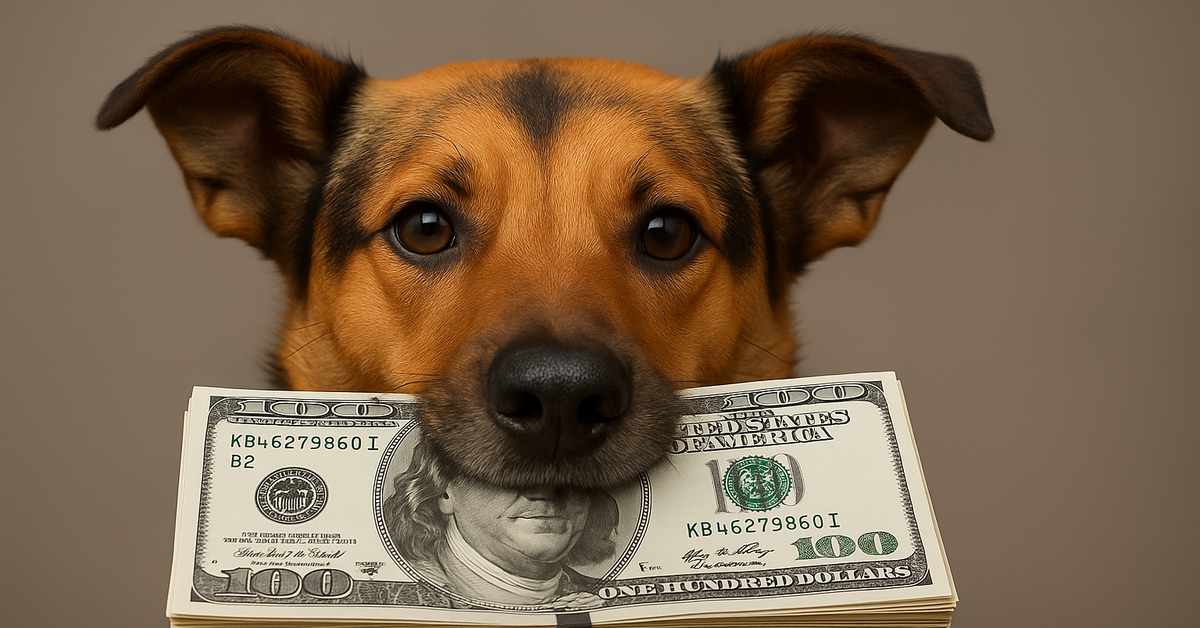This Warren Buffett Strategy Could Keep You Out of Debt

KEY POINTS
- Warren Buffett's company, Berkshire Hathaway, holds over $300 billion in cash.
- Having a cash reserve helps you avoid high-interest debt when life throws you a curveball.
- Cash on hand also lets you act fast on opportunities.
Warren Buffett is legendary for his investing prowess. But one of his most underrated strategies has nothing to do with stocks, bonds, or acquisitions: It's the way he always keeps a huge pile of cash on hand.
Buffett's company, Berkshire Hathaway, is sitting on more than $300 billion in cash and cash equivalents as of early 2025. That's several times more than most big corporations, including Amazon and Microsoft.
Buffett once said that cash is like oxygen: "If it disappears for a few minutes, it's all over."
That same thinking can help you stay out of debt and in control of your finances -- even if you don't have billions to your name. Here's how.
Why Buffett holds so much cash
Buffett is a long-term investor. He'd rather put money to work than let it sit and lose value to inflation.
In fact, he once said, "Anytime we have surplus cash around, I'm unhappy."
Yet Buffett knows the market doesn't always offer great deals. So he keeps cash on hand and waits -- and when an opportunity comes, he pounces. That's how Berkshire was able to make huge (and hugely profitable) investments in companies like Apple and Bank of America.
Berkshire's cash reserves also allow it to weather hard times. If the economy takes a turn for the worse, Berkshire doesn't need to take on debt, sell investments, or make other risky moves to get by.
How a cash reserve helps you avoid debt
You don't need to be the sixth-richest person in the world to use this strategy. An emergency fund of three to six months' worth of expenses can give you the same kind of cushion.
Here's how it can help:
- Avoid high-interest debt. If your car breaks down or you lose your job, having cash means you don't need to reach for a credit card or take out a loan.
- Avoid selling investments early. Selling stocks or pulling money from your retirement fund early can hurt your long-term goals. Cash gives you room to breathe.
- Take advantage of opportunities. You never know when you might have the chance to make a great investment -- whether it's a stock that's undervalued or a car that's selling for half the Blue Book price. Cash gives you the ability to act on opportunities before they're gone.
- Feel more secure. Even if you never need your emergency fund, you'll sleep better knowing it's there.
How to build your own Buffett-style cash reserve
Start small and automate it
Set up automatic deposits to a high-yield savings account (HYSA). There are HYSAs with interest rates of 4.00% or more. At that rate, if you saved $100 per month, you'd have $6,816 in the bank in five years.
One of my favorite HYSAs is the Barclays Tiered Savings account, which pays 4.00% APY on all balances under $250,000. There's no minimum balance and no monthly fees. Open a Barclays Tiered Savings account today to start earning more than 9X the national average interest rate.
Increase your savings over time
If you get a pay raise, a bonus, or a big tax return, then put it into savings. Odds are you won't miss that extra cash if you don't give yourself the chance to spend it.
Cut expenses until your emergency fund is full
Comb through six months' worth of credit card and bank statements. Most people will find they can easily trim $50 or more from their monthly budget.
Once you have three to six months' worth of expenses stashed in a savings account, you can make like Buffett and start investing your spare income. For that, I suggest you start with your 401(k), if you have access to one, or an individual retirement account (IRA).
Stay ready
Buffett doesn't just win by picking stocks -- he wins by staying prepared, too. His massive cash reserve is a reminder that financial strength means having options.
You may not be a billionaire, but the same logic applies. Build a cash buffer, and you'll be less likely to fall into debt, more ready to seize opportunities, and better equipped to weather life's surprises.
Disclaimer: Investing carries risk. This is not financial advice. The above content should not be regarded as an offer, recommendation, or solicitation on acquiring or disposing of any financial products, any associated discussions, comments, or posts by author or other users should not be considered as such either. It is solely for general information purpose only, which does not consider your own investment objectives, financial situations or needs. TTM assumes no responsibility or warranty for the accuracy and completeness of the information, investors should do their own research and may seek professional advice before investing.
Most Discussed
- 1
- 2
- 3
- 4
- 5
- 6
- 7
- 8
- 9
- 10